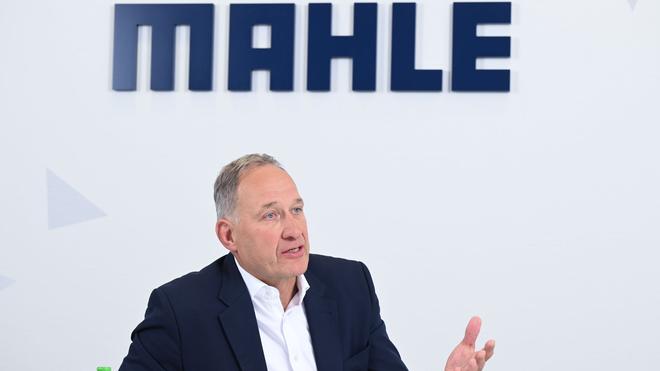
The Unexpected Setback: Mahle Faces Revenue Decline in 2024
As the automotive industry grapples with shifting market demands and geopolitical uncertainties, leading suppliers like Mahle are feeling the strain. The prestigious automotive supplier reported a significant drop in revenue, plunging to €11.7 billion in 2024 from the previous year’s figure of €12.8 billion. According to Mahle’s CEO, Arnd Franz, this decline reflects broader economic challenges affecting vehicle production and sales.

The drop in revenue can be traced back to a confluence of factors: a lackluster economy, dwindling vehicle demand, and a sluggish transition to electric mobility. Franz emphasized how automakers are trying to adapt to these turbulent conditions, which inevitably impacts suppliers like Mahle. He stated, “All automobile manufacturers were striving to adjust their capacities to the difficult conditions. This naturally affects suppliers.”
Perhaps what’s most alarming is that despite this revenue decline, Mahle remains profitable, thanks in part to divestitures that have brought approximately €300 million into their coffers in 2024 alone. Yet, with a murky outlook for the industry, it’s hard to predict how long this profitability can be sustained.
Global Trends Affecting Mahle
2024 proved to be a demanding year not just for Mahle but for European and North American markets collectively. “The markets have developed weaker than expected, especially in Europe and North America,” said Franz. Interestingly, while Mahle’s performance in Asia was affected less severely, revenues from China didn’t provide the growth boost that was anticipated. Conversely, India and South America showed positive trends, highlighting a shift in demand to emerging markets.

Mahle is in a transformational period, with over 60% of its revenue now independent of traditional combustion engine vehicles. The company, much like its competitors, is pivoting towards electric mobility. Towards the end of 2024, it made the tough decision to shut down facilities in Gaildorf, Germany, and Mattighofen, Austria. Moreover, a U.S. plant in Charleston is set to close in the first quarter of 2025. This strategic realignment demonstrates Mahle’s commitment to adjusting its portfolio in line with the industry’s evolving landscape.
Restructuring Amid Rising Challenges
Reflecting on the numerous changes, Franz has been outspoken regarding the need for a reevaluation of the EU’s combustion engine ban. He argues that while progress has been made regarding the competitiveness of Mahle’s German sites, a comprehensive review of CO2 regulations is essential. As he aptly put it:
“We need a fundamental revision of CO2 regulation that not only considers exhaust emissions but also takes into account a comprehensive life-cycle consideration and allows space for hybrid drive systems and advanced sustainable fuels.”
As we approach the EU’s impending ban on combustion engines by 2035, these concerns necessitate an open dialogue about the implications on both suppliers and manufacturers.
Concluding Thoughts
In conclusion, Mahle’s experiences in 2024 serve as a microcosm for the larger automotive industry engulfed by challenges. From economic downturns to geopolitical ramifications, and a race towards electric mobility, it’s a pivotal moment for all players involved. As an industry observer, I remain optimistic yet cautious about the path forward. The roads to recovery and innovation may be fraught with obstacles, but the potential for growth, especially in hybrid technologies, remains bright.
As we navigate through these changes, the resiliency of companies like Mahle will play a crucial role in defining the future of mobility in a sustainable and economically viable manner. We can only hope that as the year progresses, fresh strategies will emerge that align with both consumer expectations and regulatory frameworks, paving the way for a more prosperous automotive landscape.















